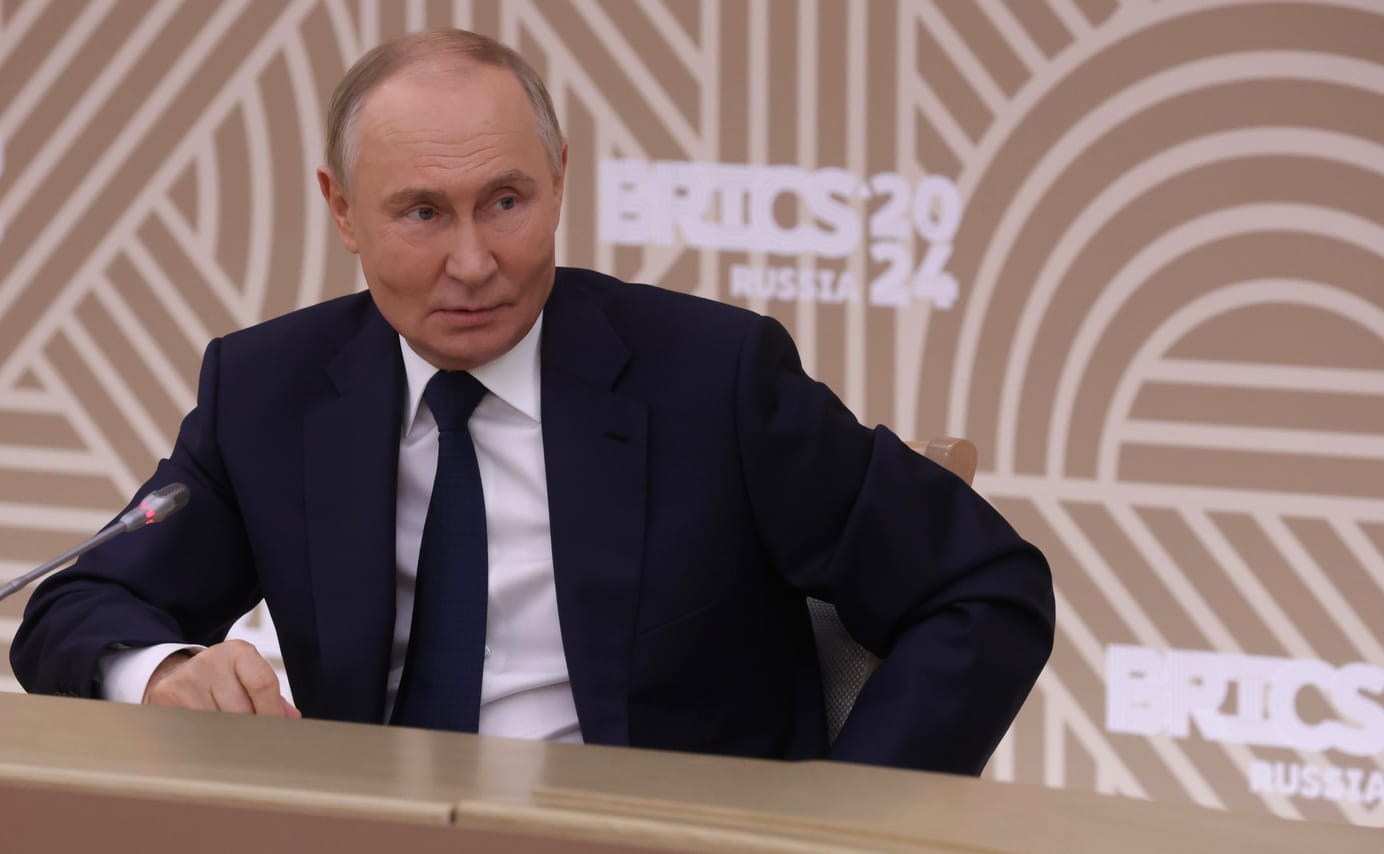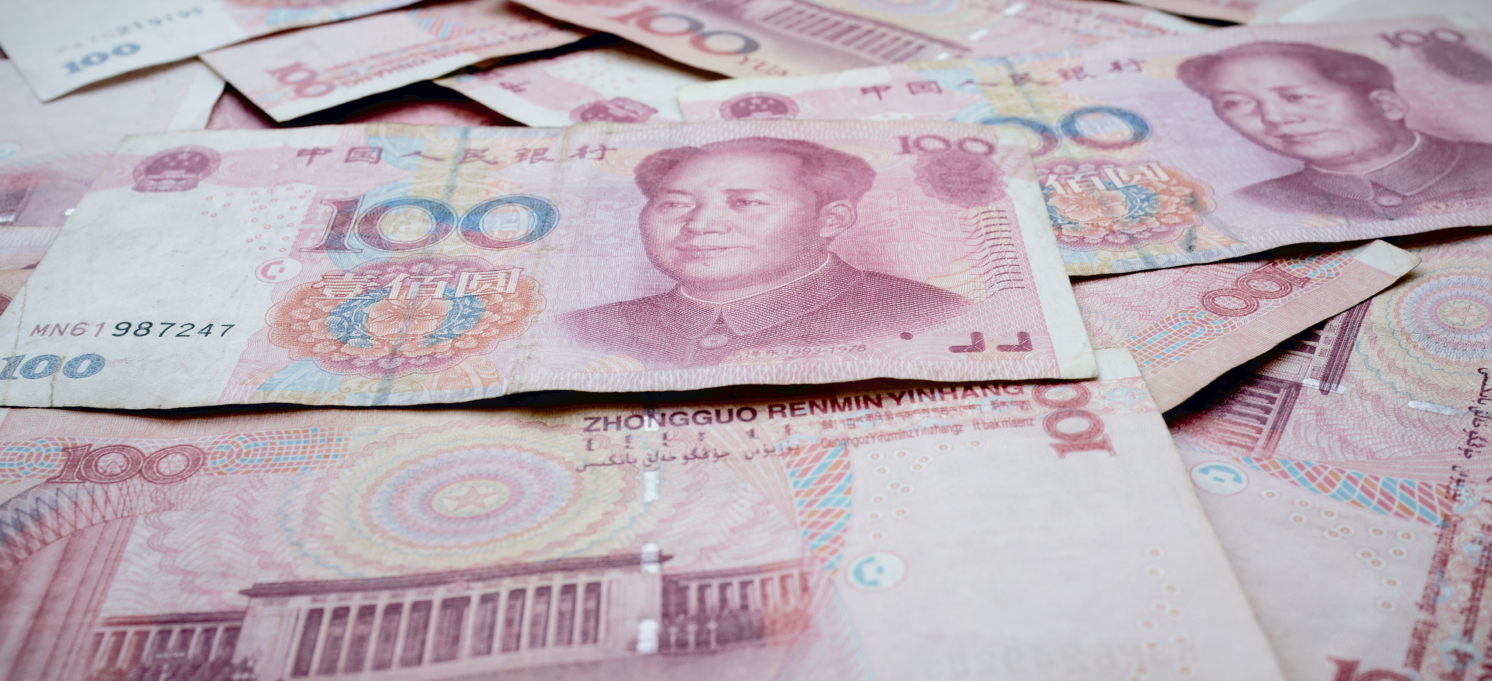Rising inflation becoming political hot potato
Hello! Welcome to your weekly guide to the Russian economy — brought to you by The Bell. Our top story this time is the growing political problem of inflation, how the government is seeking to dampen price rises, and what effect this will have on the economy. We also look at infrastructure in Siberia that is fraying at the edges as it struggles to cope with increased export flows to Asia since the full-scale invasion of Ukraine.
Russian government turns to export bans and price freezes in inflation
As Russia’s presidential election — scheduled for March 2024 — approaches, the authorities are making ever more urgent efforts to tackle inflation. Price increases have reached double figures at a particularly inconvenient moment for the government, which has been charged with ensuring “stable prices” by President Vladimir Putin. While the Central Bank’s monetary policy remains the crucial weapon in sending inflation lower, politicians are noisily proposing new ideas every week. What’s all this doing to the Russian economy?
What’s going on?
As it became clear this summer that inflation was soaring, Putin described rising prices as the biggest risk to the country’s socio-economic development. At a meeting on economic issues in July, he said: “it’s important to maintain stable prices in our economy and ensure a balance between supply and demand. Here our government should play a leading role. It should contribute to expanding the production of goods and services.”
Of course, Putin’s words were almost irrelevant: no stimulus can quickly solve the problem of supply lagging behind demand. The real power when it comes to curbing inflation remains with the Central Bank, which started interest hikes three days before Putin’s speech. Nonetheless, the government could not ignore the job it was given so publicly. And it has experience of limiting price rises from a previous period of rapid inflation in 2020-21.
As a result, the government has taken a series of increasingly populist decisions in recent months that are intended to slow price increases:
- The most dramatic measure involved fuel prices — a debacle in which the government only managed to cause itself a lot of problems. On Sept. 1, the Finance Ministry decided to halve the size of so-called damper payments — subsidies for oil refiners selling on the domestic market. These payments had reached eye-watering levels: in 2022, oil companies got 2.2 trillion rubles (3.5 times greater than the year before). But canceling such a long-established price regulation measure led to unintended consequences — namely, a fuel shortage on the domestic market and rocketing prices. To bring the situation under control, the government banned fuel exports, and made significant payouts to selected companies.
- A ban last month on poultry exports was more symbolic than anything else. Nevertheless, it was announced in a piece of populist theater at an Oct. 25 online meeting between the government and Putin. Agriculture Minister Dmitry Patrushev (the son of Kremlin hawk Nikolai Patrushev) dialed in from a chicken farm, and talked up the success of the industry. Putin praised Patrushev, but also asked why chicken prices in Russia had increased 27% since the start of the year. Patrushev assured the president a way to reduce prices had been found. The following day, the Agriculture Ministry proposed a temporary ban on poultry exports. Unlike with the fuel market, an export ban on poultry has far less impact on domestic prices — with the pain being felt far more by producers than consumers.
- A few days later, the government enacted another export ban, this time on durum wheat, which is primarily used to make pasta. Durum wheat is a tiny segment of the wheat market, about 100,000 tons a season, but a ban is a handy thing to do when you have to report on efforts to control prices of a staple product.
- In early November, the fight against rising prices impacted retail trade and the government appeared to get involved. There has been no public agreement with retailers over price controls, but major retail chains are acting on their own amid apparent pressure from the Ministry of Industry and Trade and the Federal Antimonopoly Service. For example, newspaper Kommersant reported Wednesday that Auchan, one of Russia’s biggest grocery chains, had written to suppliers asking them not to raise prices this year — and threatening to report increases to the regulator.
Is any of this helping to reduce inflation?
No. Every economist who spoke to The Bell accepts one key truth: any “manual” measure — like price controls or export limits —- will do nothing to dampen inflation. “They might work patchily and for a short period of time, but they will hit future output and investment, reducing supply and raising prices down the road,” said economist Dmitry Polevoy.
It’s also difficult to reduce inflation via such restrictions because Russia’s price rises are demand driven. Demand grew sharply after the Central Bank slashed interest rates last year, and has been fuelled by both growth in state spending (mostly war-linked) and labor shortages driving up household incomes (real incomes rose 7.5% between January and August).
The most effective defense against inflation remains the Central Bank. At present, according to Alexander Isakov of Bloomberg Economics, the bank appears to be seeking to thin out demand: high interest rates on deposits should motivate some to postpone purchases until a point when supply increases and price levels have started to balance out.
How bad is this for the economy?
So far, Prime Minister Mikhail Mishustin has not gone too far in his non-market struggle against inflation. He went much further in 2020-21 when Russia was one of many countries grappling with the fallout from a huge financial stimulus linked to the coronavirus pandemic. At the time, the Russian government imposed multiple export bans, directly froze some prices, and reached agreements with leading retailers. “It really helped to stabilize prices but also led to localized shortages,” recalled Isakov. “After 2021, the government did not extend these agreements, nor seek other price freezes.”

Now, despite the inflation problem and the approaching election, the government is apparently not considering similar steps. Instead it is opting for short-term solutions (e.g. fuel export bans) or cosmetic measures (blocks on agricultural exports).
Some measures imposed in 2020-21 remain in place — and they are a good illustration of how such steps can lead to long-term damage to the economy. To stop bread prices increasing, the government introduced a permanent grain export duty in early 2021. After two years of these tariffs, experts have said that the grain industry is stagnating, unable to afford to buy new equipment or purchase necessary amounts of fertilizer.
In essence, non-market efforts to fight inflation mean companies have to deal with a far more unpredictable business environment. “Typically, administrative measures lead to a loss of profits during spells of high incomes, but rarely compensate for lost profits in difficult times. That reduces the stimulus for investment,” Isakov said.
In Russia, the problem is exacerbated by the fact that many companies never enjoyed a post-Covid period of high income because the pandemic was quickly followed by the full-scale invasion of Ukraine and Western sanctions. “In the rest of the world, this year was a year of normalization and cheaper logistics, which can be seen in the slowdown in commodities and, to some extent, inflation in many countries. In our country, this positive influence was more or less absent,” Polevoy said.
Why the world should care
Russian regulation is smarter than it might seem, and Mishustin’s government is a long way from seeking to apply Soviet-era controls. Despite occasional populism, which alarms experts, such measures are actually less frequent now than they were before the war.
The main risk for the Russian economy, however, is not the threat of a return to Soviet-style economic management. It’s that, due to the war, the government behaves inconsistently. Thus, with one hand it approves a budget that increases spending by 26%, while on the other hand it wants to control inflation by restricting exports. Inevitably, the war will further unbalance the economy and, sooner or later, we will end up with a major crisis.
Russian trade with China stretches infrastructure to its limits
It’s all very well Russia “pivoting to Asia,” but rising Russian exports of raw materials to China are running into a predictable bottleneck in the form of infrastructure. This week it emerged that electricity systems in Siberia are struggling to cope with a simultaneous increase in rail freight traffic and oil pipeline volumes.
- The problem was detailed in documents from state-owned pipeline company Transneft, reported Thursday by newspaper Kommersant. It seems that the company regularly has to reduce oil flows to China due to disruptions and failures in energy networks. And outages are getting more frequent: in 2020-22 there were 17, compared with 24 in the first nine months of this year.
- In physical terms, the decrease in oil shipments has not been that significant — 17,000 tons in the first nine months of this year (Transneft pumped a total of 31 million tons to the Far East port of Kozmino in the same period).
- To further complicate the issue, state-owned Russian Railways is planning to expand its infrastructure in the region, which will greatly increase the strain on local electricity providers. Transneft has blamed state power company Rosseti for the outages, which, in turn, has pointed the finger at Russian Railways.
- This squabble between state companies illustrates a crucial issue: there is no excess capacity in eastern Siberia with which to ease the redirection of raw material exports from west to east. “The rail network is overloaded with freight exports to China, not all shippers can send their goods. There is a shortage of maritime transport capacity due to sanctions and there is a lack of pipeline infrastructure,” Vasily Kashin, one of Russia’s most respected China experts, said earlier this year. There are constant traffic jams caused by overloading on the railways and at ports.
- All the state-owned companies involved in this argument plan to spend trillions of rubles on regional infrastructure — Rosseti alone has a trillion-ruble investment program for 2023 and 2024, 40% of which is planned to be spent in Siberia and the Far East. It’s likely that these sums will increase. However, even now, high interest rates are prompting state-owned companies to request preferential loans to enable them to be able to deliver their investment programs.
Why the world should care
Russia’s “pivot to China” comes at a cost. Without better infrastructure in Siberia, there is a limit to how much can be exported to Asian countries. For the Russian government, investment in this area will be a priority in the coming years.
Figures of the week
- Annual inflation in October reached 6.69%, up from 6% in September, the State Statistics Service reported Friday. The seasonally adjusted annual rate (SAAR) is about 10% — less than September, but still very high.
- Sales of new passenger cars and light commercial vehicles were up 38% year-on-year in October to 110,000. This means sales for the whole year will likely top 1 million vehicles. That’s more than last year (by about 630,000 vehicles) but much less than the 1.66 million sold in 2021.
- Russian courts are much more likely to impose interim measures on foreign companies, according to a report by Russian law firm MEF Legal, which researched almost 300 recent court rulings. Interim measures, which usually involve seizure of property, were used in a third of cases. Economic legal disputes involving foreign companies have doubled since the full-scale invasion of Ukraine: in 2021, there were 13,900 cases; in just the first six months of 2023, there were 14,000.
Further reading
‘Blood in the water’: How Carlsberg lost its Russian business



